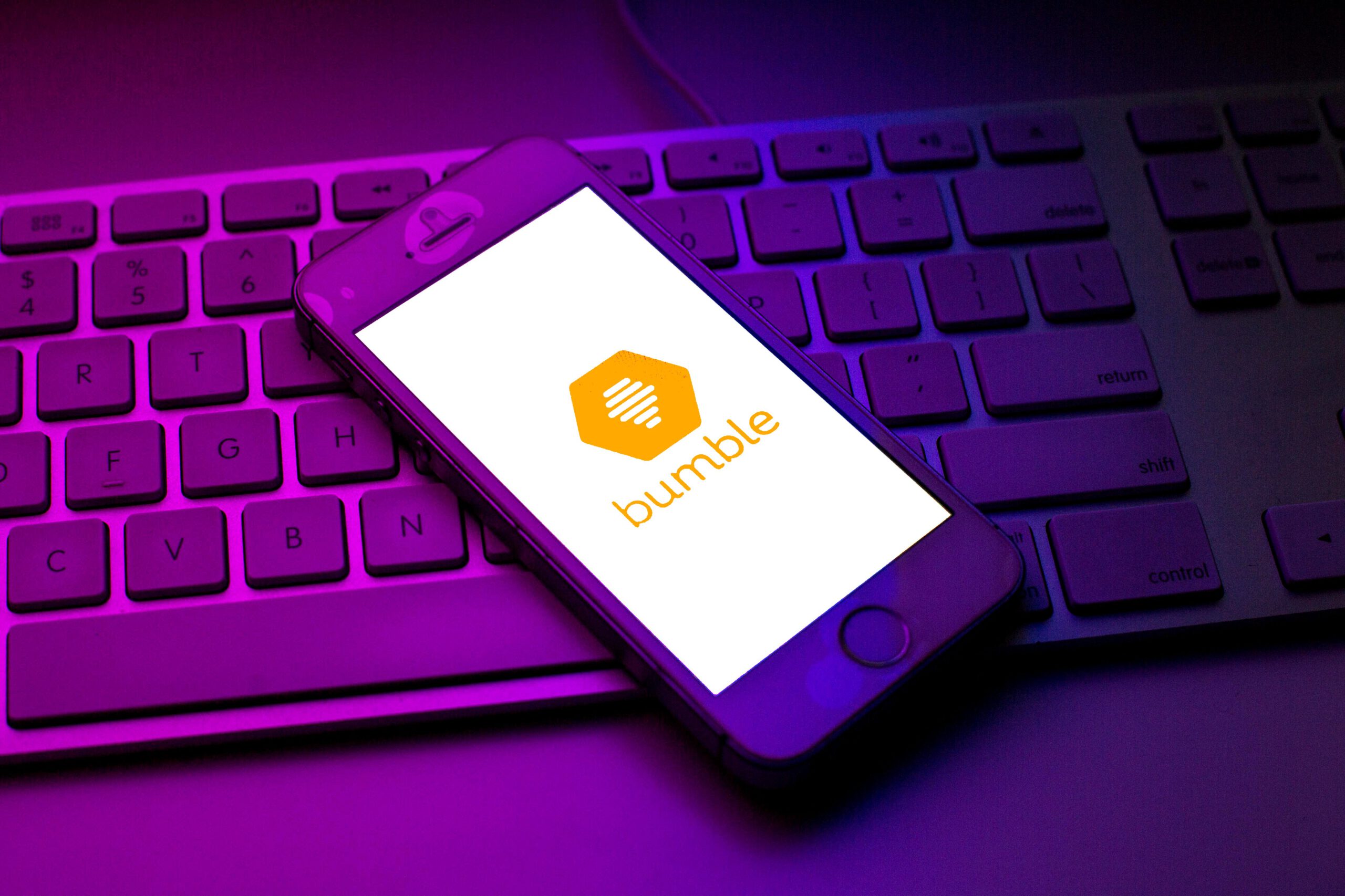Bumble’s 2024 dating trend predictions have some real surprises

It’s beginning to look a lot like Christmas the end of 2023, which means it’s time for 2024 predictions. Last year, Bumble dropped several dating trends to watch out for this year, like “love-life balance” and dating beyond your type. Now, the dating app has whipped up its forecasts for next year, including value-based dating and not caring about typical relationship timelines.
Cross-gen romance
Bumble says singles are more open to dating older or younger. For 63 percent of folks, age isn’t a defining factor, and 59 percent of women say they’re now more open to dating someone younger than them, according to research conducted by Bumble this September, with a sample of over 26,800 Bumble members globally.
Further, more than one in three women (35 percent) say they’ve become less judgmental towards age gap relationships over the last year.
Dating based on values
Since the pandemic, dating apps have seen a rise in people who want matches to care about the same issues they do (see “green dating”) . Now, Bumble reports that singles are looking for partners to not only care about social causes, but actively engage. They call this “Val-Core” dating, or the rise of singles valuing engagement on issues that matter to them. One in four people on Bumble think it’s key for their partner to be engaged in political and social causes. Women are less open to someone with different political views, according to Bumble; for 33 percent, it’s a turn off if someone they’re seeing isn’t aware of current issues.
Want more sex and dating stories in your inbox? Sign up for Mashable’s new weekly After Dark newsletter.
Stop the self-improvement trap
Especially in the U.S., there’s a sense that we always need to better ourselves. This is reflected in Bumble’s research: 55 percent of singles feel pressure to constantly look for ways to self-improve. This impacts mental health; 24 percent feel unworthy of a partner if they haven’t invested in themselves. Some singles, however, are bucking against that trend. Two in three women Bumble surveyed (68 percent) are taking active steps to be happy with who they are now — and 40 percent say they’ll only date people who won’t try to change them.
Emotional intimacy is key
A focus on dating someone who is tune with their mental health and goes to therapy has been on the rise for a couple years. Now, Bumble sees how important emotional intimacy is for daters. One third (32 percent) believe emotional intimacy is more important than sex, and that’s more attractive than physical connection. Seventy-eight percent of women said it’s important for their partner to understand both emotional and physical intimacy.
Self-care still rules
58 percent of singles are more open about their mental health, according to Bumble, and are making an effort to slow down. This coincides with an emphasis on intentional dating that began — you guessed it — during the pandemic. One in three (31 percent) are “slow dating” and want quality over quantity. These stats are higher for women: 36 percent (40 in the U.S. alone) are actively seeking people who practice and value self-care.
Open-hearted masculinity
The “manosphere” “alpha male” has seemingly been in vogue in 2023, with influencers like Andrew Tate influencing followers of all ages. Thankfully, there are men out there who aren’t falling for it. Bumble found that one in four men globally and 31 percent in the U.S. have actively changed their behavior and became more vulnerable with their partners than ever before. One in four have also found that this openness has been positive for their mental health, while 32 percent overall (and 35 in the U.S.) even think being open and vulnerable is the most important aspect to a relationship.
“It is exciting to see people continue to lean into self-acceptance and vulnerability as the foundation of healthy and equitable relationships,” said Bumble’s sex and relationships expert Shan Boodram in the press release. “When we are kinder to ourselves, we are able to make more meaningful, purposeful, and intentional connections both online and in real life.”
Relationship timeline decline
The pandemic ushered in an era of us rethinking how we do things — including relationships. Some people came out, other people discovered they want to be non-monogamous. This rejection of “traditional” monogamous relationships and expectations will continue in 2024, Bumble predicts. Women especially are building their own paths: 31 percent say they’re no longer focused on adhering to traditional timelines and milestones, and the same amount want to only date people who have the same perspective (the latter number boosts to 37 percent in the U.S.).
While 72 percent of women are looking for a long-term relationship, only 23 percent seek marriage. For 16 percent globally and 18 percent in the U.S., this means actively avoiding love ones who pressure them.
Most Valuable Partner
Sharing an interest in sports is an extremely important factor in a potential partner for 31 percent of Bumble singles. Around a quarter (24 percent) say that attending sports events together is important, especially among millennials and Gen Z. Sports interest badges are the most widely used in the U.S., Bumble states, with the top being basketball, football, and running. Seems like singles want their own Taylor Swift and Travis Kelce story.
“These trends highlight a positive shift toward celebrating who you are, as you are, moving away from traditional timelines, redefining outdated expectations, and seeking shared values,” said Boodram. “I look forward to seeing what 2024 holds for the Bumble community as they continue to bring their most authentic selves to the table and make kind connections.”
Want more sex and dating stories in your inbox? Sign up for Mashable’s new weekly After Dark newsletter.
